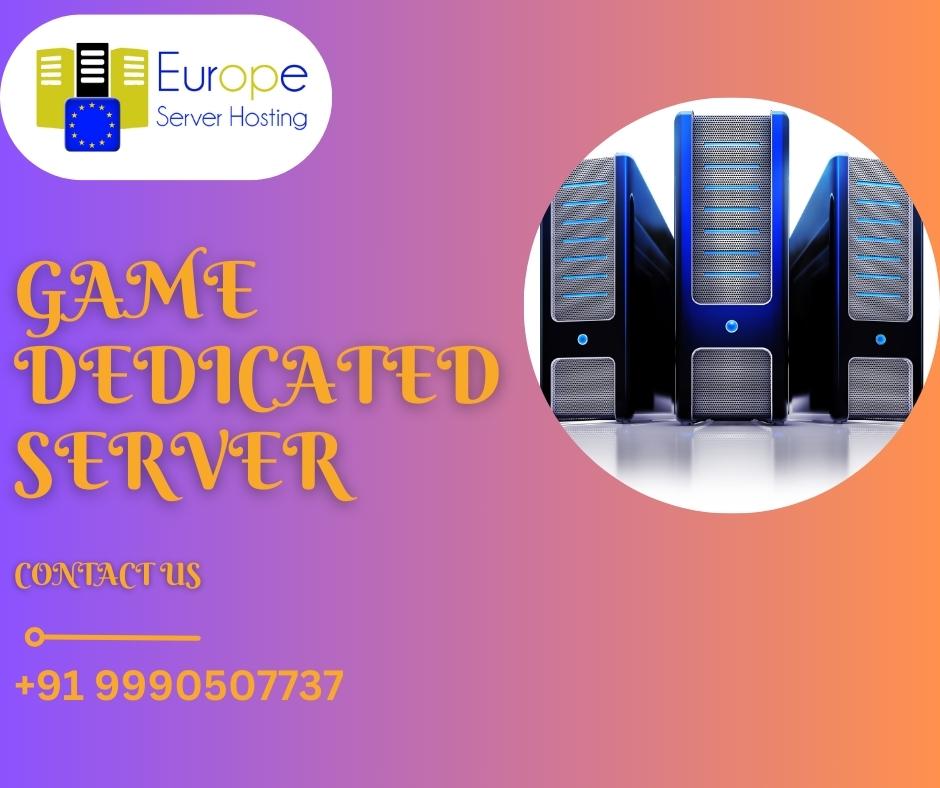Are you passionate about online gaming and want to create a seamless gaming experience for you and your friends? Setting up a game dedicated server could be the key to unlocking endless gaming possibilities. In this comprehensive guide, We will walk you through the process of setting up your own Game Dedicated Server, from choosing the right hardware to configuring the necessary software. By the end of this guide, you’ll be well-equipped to host your favorite games with low latency, high performance, and full control.
Understanding the Basics
Before we dive into the technical details, let’s start with the fundamentals. What exactly is a game dedicated server, and why might you need one?
A game dedicated server is a specialized computer that runs game server software independently of a player’s console or PC. Unlike peer-to-peer connections, where one player hosts the game on their machine, a dedicated server offers several advantages, including:
Stability: Dedicated servers provide a stable gaming environment, reducing the chances of crashes or disconnections.
Low Latency: Hosting your own server can significantly reduce latency, resulting in a smoother gaming experience.
Customization: You have full control over server settings, allowing you to tailor the gaming experience to your preferences.
Now that we understand the benefits let’s move on to setting up your game dedicated server.
Hardware Requirements
The first step in creating a game dedicated server is choosing the right hardware. The specific requirements can vary depending on the game you want to host, but here are some general guidelines:
Processor: Look for a CPU with multiple cores and high clock speeds. Games with a large number of players may require more processing power.
Memory: Aim for at least 8GB of RAM, with more being beneficial for larger games or modded servers.
Storage: Solid State Drives (SSDs) are recommended for faster data access, but HDDs can work for less resource-intensive games.
Network Connection: A high-speed, stable internet connection is essential. Consider a dedicated IP address for your server.
Graphics Card: While most dedicated servers don’t require a dedicated GPU, it can be useful for remote administration.
Choosing the Right Game Server Software
Once you have the hardware sorted, it’s time to choose the game server software. The software you select will depend on the game you want to host. Popular choices include:
SteamCMD: Used for hosting games like Counter-Strike, Team Fortress 2, and Rust.
Minecraft Server: Ideal for hosting Minecraft worlds.
ARK Server Manager: For hosting ARK: Survival Evolved servers.
FiveM: Used for creating custom GTA V multiplayer servers.
Source Engine Dedicated Server: Suitable for various Source engine games.
To set up the server software, you’ll need to download and install it on your dedicated server machine. Be sure to follow the installation instructions provided by the game’s developer or the server software’s documentation.
Configuration and Customization
Now that you have the game server software installed, it’s time to configure and customize your server to meet your preferences. Here are some essential aspects to consider:
Server Settings: Adjust game-specific settings such as game mode, player limits, and map rotation.
Mods and Plugins: Depending on the game, you may want to install mods or plugins to enhance gameplay.
Security: Implement security measures like firewalls and DDoS protection to keep your server safe from attacks.
Backups: Regularly back up your server data to prevent data loss in case of unexpected issues.
Server Administration: Familiarize yourself with server administration tools and commands to manage your server effectively.
Testing and Optimization
Before inviting players to join your server, it’s crucial to test its performance and optimize it for a smooth gaming experience. Monitor server resources, check for any performance bottlenecks, and make adjustments as needed.
Community Building
Once your game dedicated server is up and running flawlessly, it’s time to build a gaming community around it. Promote your server on gaming forums, social media, and server listing websites. Engage with your players and gather feedback to continually improve the gaming experience. get more information about Best Dedicated Server.
Conclusion
Setting up a game dedicated server and Linux Dedicated Server can be a rewarding endeavor for any gaming enthusiast. With the right hardware, software, and configurations, you can create a gaming environment tailored to your preferences and enjoy lag-free, enjoyable gameplay. So, roll up your sleeves, follow this guide, and start hosting your own game dedicated server today

